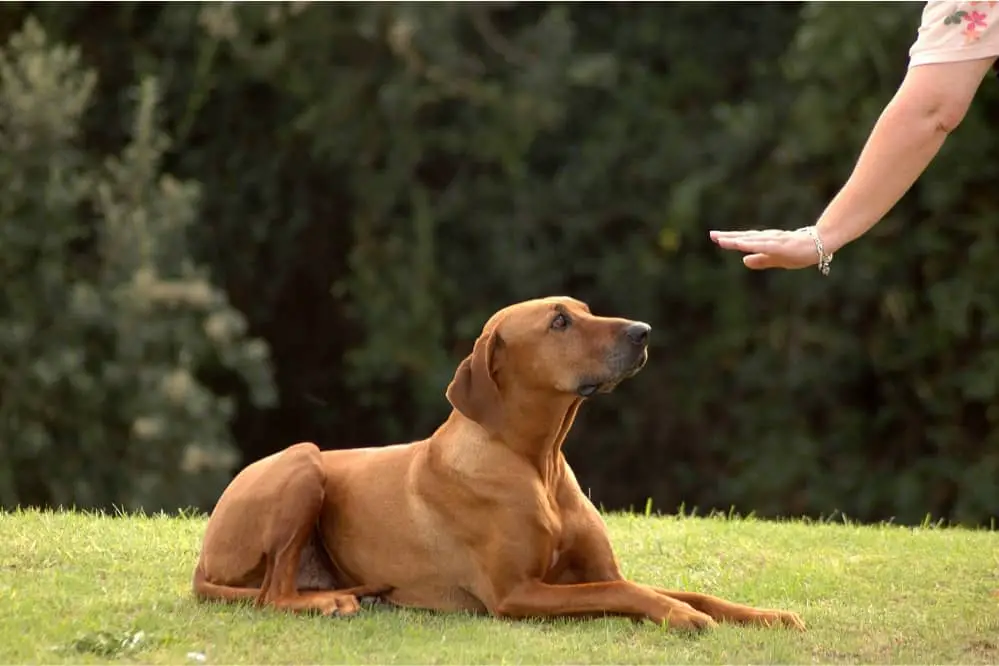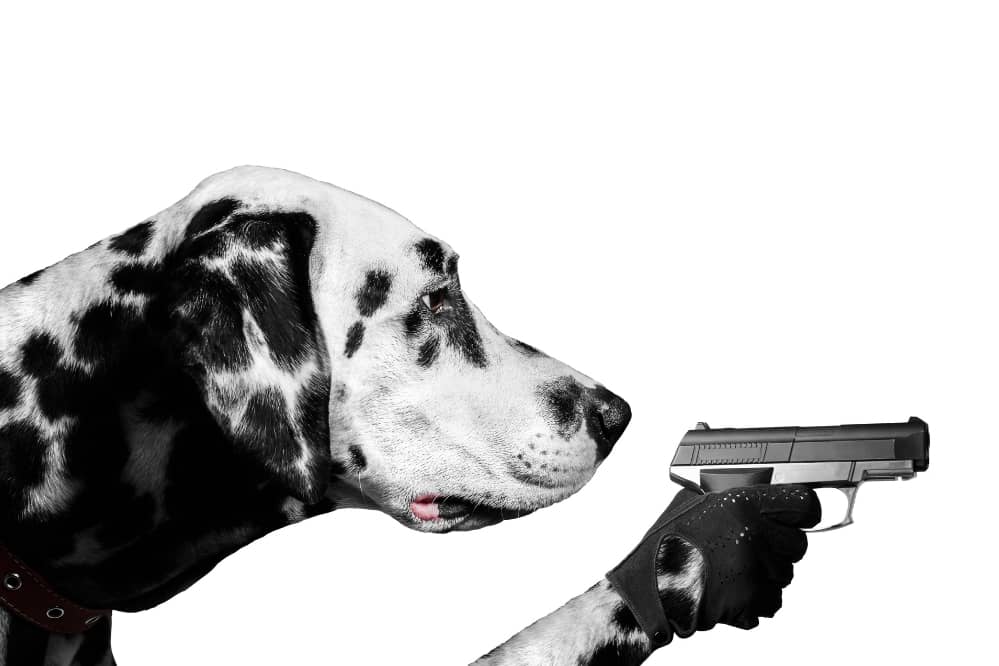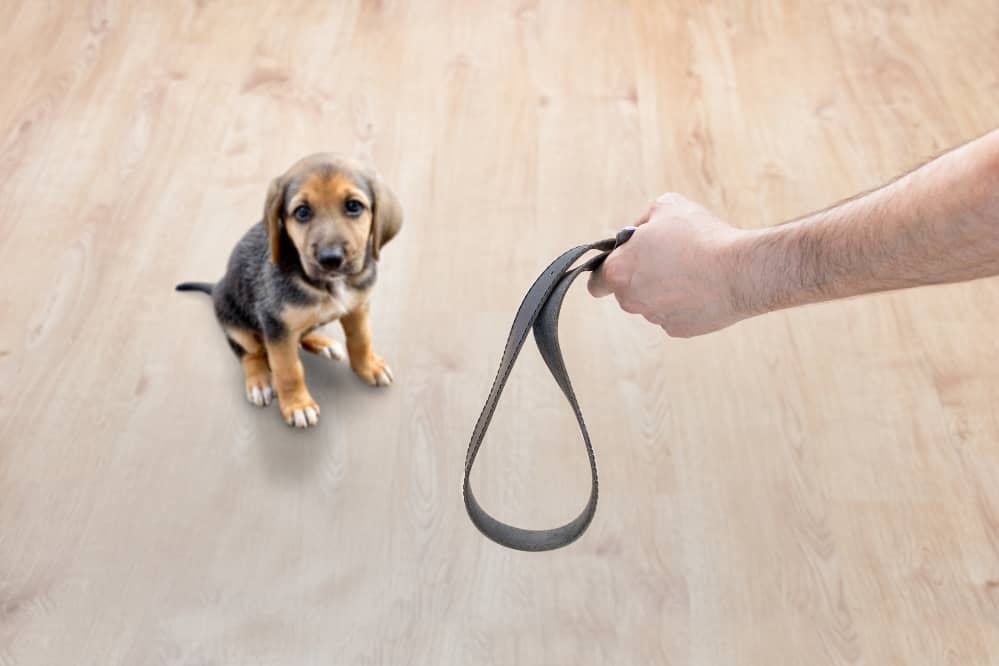We all make mistakes now and then. Unfortunately, some of our errors wind up harming those we love the most. You may have hit your dog because it did something you didn’t like while you were having a terrible day. What impact will that event have on your relationship? Continue reading to find out how you and your canine companion may move forward from that situation.
What Can I Do If I Hit My Dog in Anger?
Hitting your dog in any situation might be bad in the long run. Dogs may become afraid and unable to determine which behavior elicited the aggressive response. The pet owner must discontinue this practice. If you don’t do repeat it, your dog will not become afraid of you.
What Happens When You Hit Your Dog
You have most likely never considered hitting your pet dog. You’d do anything to protect your canine companion, so attacking them yourself seems absurd. Of course, we’re all still people. We may strike out in emotional moments and do things we later regret. If you are frustrated with your job or other elements of your life, the last thing you need is for your dog to harass you. They may also make a mess inside your residence at inconvenient times. In either situation, you may lash out furiously at your dog. Striking your dog is never a good choice under any circumstances. It makes no difference if you were simply acting on your emotions; your pet does not deserve that kind of treatment.
So, what happens if you engage in such behavior?
If you hit your pet, they may become scared of your presence, according to VCA Animal Hospitals. When you get home, your dog may flee at the sight of you instead of racing to your side. In your presence, your pet may also get violent. If they believe you might hurt them, they may react aggressively.
However, if you make a practice of hitting your dog whenever you are furious, serious problems will occur. This article will assist you in developing a stronger relationship with your dog and employing more effective punishment strategies.
Dog Owners Must Be Assertive While Remaining Calm
A dog owner should exude calm but firm energy. If you struck your dog out of rage, you should work hard to improve your emotional control so that you don’t do it again. A more timid dog may become terrified of you, which you do not want. You may lose your dog’s respect, making good punishment that much more difficult.
Sending The Right Signals
They may be feeding off of your anxiety if you’re the type of person who is constantly on edge. Out of frustration, a dog that is frequently abused may begin to demonstrate aggressive behavior.
When discipline is required, it should be brief, and things should swiftly return to normal. If the dog was pleased before the punishment was required, they are more likely to respond to proper correction with a wish to return to the previous state. If you and your dog have no relationship, proper discipline will be impossible to develop. A dog that loves and trusts you will seek your favor and shun your rejection.
Take time out of your day to walk your dog, play with him or her, and show affection. However, not all dogs are warm and affectionate, and they may choose a high-energy activity.
When you command your dog keep it brief and concise. Some owners develop the habit of yelling long words at their dogs, which only serves to confuse them. Saying “No” or “Come” is going to be much more effective.
Furthermore, yelling at your dog all the time sends all the wrong signals.
Proper Discipline for Dogs
A healthy connection with your dog requires proper discipline. Having clearly defined limits makes your life easier. You do not have to be bossy or abusive, but you must be assertive. Level of assertiveness depends on the personality of dog. Shy dog may not require the same level of assertiveness from you that a stronger dog may demand.
The Application of Tone and the Corrective Tap
Positive punishment is favored, yet it is difficult to administer correctly because our emotional states vary. The corrective tap or the strong voice are two of the most suggested forms of positive punishment. Your dog will normally want to please you, and negative behavior should be corrected with little more than a tone of disapproval over time. Many seasoned dog trainers advocate the “corrective tap,” which is a light tap on the nose with two fingers followed by a disapproving tone. This does not include inflicting harm; it is primarily a display of disapproval.

To apply the corrective tap, do the following:
- Say “NO!” in a deep, disturbing voice.
- Immediately after scolding your dog, lightly yet unexpectedly tap them on the nose.
- Go to your dog when they demonstrate undesirable behavior; do not call them to you.
You don’t want your dog to equate the punishment with coming when you call, so you should go to where they are instead of calling them. This will make it more difficult to get your dog to come when you need them to. The tone of your voice is vital, and it should be proportionate to the offense.
They will soon tune you out if you are constantly yelling. Some trainers advise against using your hand to chastise the dog since it may cause them to flinch. Again, the goal is to express displeasure and get the dog’s attention, not to cause pain. It may become unnecessary to use the tap in the future. The tone of your voice will suffice.
Do Dogs Forgive Their Owners?
If you hit your dog out of rage, one of the first questions you’ll undoubtedly have is”if a dog gets mad at you, will it forget about it”?
If you and your dog have a strong bond, your pet may understand if you make a mistake because dogs are commonly seen as family members. We have a propensity to imbue them with human attributes that they do not possess. However, if you start hitting your dog out of frustration, especially if the dog doesn’t understand why, you will simply train them to be uneasy and scared around you.

While dogs can sense emotions and become angry, there is little indication that they can relate reasons to emotion in the same way that people do. Dogs tend to live in the moment rather than harboring long-term grudges. If hitting your dog was out of character for your dog-human relationship, they will likely forget about it within a day or two, if not sooner.
Conclusion
If you make a mistake and hit your dog out of anger, remember that dogs live in the moment and are incredibly forgiving. Unfortunately, we as humans can behave in the heat of the moment as well, but this should not be our default mode. We are significantly more capable of reflection and decision-making than dogs.
Hitting your dog isn’t the end of the world, but you’ll need to develop healthier behaviors and communicate clearly with your dog. You should be the pack leader as the dog owner. That necessitates your remaining calm, composed, aggressive, and kind to people who follow you. Your dog will feel more at peace if he sees you being calm and confident. They will come to appreciate you, and you may even learn to respect yourself with time.
Use this experience to teach yourself how to have a more pleasant and long-lasting relationship with your dog.

